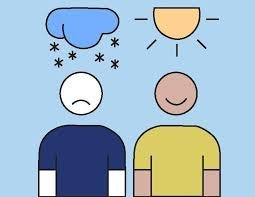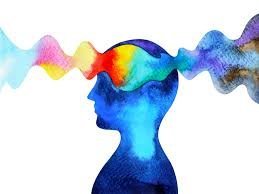Blog
Anxiety at Night
We can’t sleep when we are anxious because anxiety is telling us a threat may be present, even when it is not, causing us to be alert and stay awake. And the worse we sleep, the more anxious we tend to feel leading to a vicious cycle. Worry Time is a great strategy to decrease nighttime anxiety and facilitate sleep.
Treating Anxiety in Therapy
Anxiety is a feeling of worry, nervousness, or unease. Often, we worry about situations that feel threatening and/or have uncertain outcomes. Evidence-based anxiety management techniques involve changing how we relate to anxious thinking, practicing not avoiding anxiety-provoking situations, and practicing exercises to decrease physical symptoms of anxiety.
Cultivating Self-Agency Through Physical Movement
A "sense of agency" refers to having control over our actions, of making something happen. One way I cope with my physical limitations is by cultivating agency in my body and strengthening the belief that my body is capable even when it doesn’t feel capable. It is empowering to engage in movement that makes you feel capable and confident.
Sustaining Joy
Joy and happiness can feel elusive and temporary. The more we seek out certain feelings the more inaccessible they are and the more frustrated we become. There is a benefit in knowing what excites and energizes us and cultivating these experiences. This article describes tips for cultivating joy.
Interpersonal and Social Rhythm Therapy
Interpersonal and Social Rhythm Therapy (IPSRT) is an evidence-based treatment for mood disorders, particularly bipolar disorder. It incorporates techniques from Interpersonal Psychotherapy (IPT), which is a therapy that explores the bi-directional relationship between mood and life events with social rhythms, or daily routines and habits.
Radically Accepting Chronic Pain
It is natural to fight against chronic pain. And, the more we fight against pain, the stronger it gets and the more depleted and exhausted we feel. Radical Acceptance is a skill from DBT that can help with chronic pain.
Living Well When Your Tank Is Empty
Life requires energy, and feeling tired throughout the day is unpleasant and can decrease your quality of life. Being chronically fatigued is even more challenging. To live well with chronic fatigue, we have to practice reframing rest and approaching the tasks of daily life differently.
Is it Spring Yet?: Coping with Seasonal Affective Disorder
Seasonal affective disorder (SAD) is a form of depression characterized by its recurrent seasonal pattern where a person experiences mood changes during the fall and winter months. Learn cognitive and behavioral strategies to cope with SAD.
Self-Compassion: Why it’s helpful and How it’s used in therapy
Most of us talk to ourselves in a harsher and more critical manner than we do with others. Learn self-compassion strategies to lessen unpleasant emotions in the present, move forward from painful memories in the past, and change unhelpful beliefs.
What is Mindfulness Therapy?
Mindfulness is defined as bringing direct, non-judgmental awareness to the present moment. Mindfulness also helps to change how we relate to our experience, particularly unpleasant thoughts and emotions.
What is Task Paralysis?
Have you ever felt helpless in the face of your to-do list and baffled about where to begin or how to tackle it? Task paralysis may cause us to feel overwhelmed, freeze, and do nothing. Here are four ways you can calm yourself in the face of overwhelm, and tackle that to-do list clear-headedly.
Anxiety and New Year’s Resolutions: Setting Helpful Goals That Don’t Exacerbate Anxiety
New Year’s resolutions can create stress and increase anxiety. Cognitive Behavior Therapy (CBT), including Acceptance and Commitment Therapy (ACT), can help you create realistic, values-based, and less anxiety-provoking goals.
How To Manifest What You Want In Life
Manifestation, or turning an idea into reality, is a popular concept that initially may seem to be based on pseudoscience. However, the view that our thoughts and feelings influence our behavior (and vice versa) is at the heart of Cognitive Behavior Therapy (CBT).
Obsession vs Passion: How to Tell the Difference
How can you tell if an activity is a healthy passion or an obsession? If you find that an activity that once brought you joy and meaning has begun to make you feel compulsive, guilty, anxious, or depressed, you may be experiencing obsessive passion.
Mindfulness Meditation for Anxiety
Mindfulness meditation the practice of noticing thoughts, feelings, sensations and urges but not reacting to these experiences. Mindfulness is part of Cognitive Behavior Therapy for anxiety, depression and many other conditions.
CBT for Sports Performance Anxiety
CBT and related skills (such as mindfulness) have been found to enhance athletic performance and reduce performance anxiety. CBT skills can also be helpful when returning to training and competing after an injury, when it is common to experience anxiety.
Anxiety! And How CBT Can Help
Anxiety disorders are the number one issue treated at CBTDenver and all of our therapists are experts in anxiety disorders. Cognitive Behavior Therapy (CBT) for anxiety involves strategies for the physical, cognitive and emotional aspects of anxiety.
CBT for Social Anxiety
We all have an inner critic inside of us. It (not so helpfully) provides a running commentary of our lives, honing in on any flaws and spinning “what if” scenarios. In the case of social anxiety disorder (SAD), that voice becomes especially loud and convincing before, during, and after social situations. We are told in no uncertain terms that others are judging us.
CBT for Hope
Research has indicated that a state of wellbeing is more likely to be experienced by individuals who are more hopeful. Cognitive Behavior Therapy (or CBT) teaches people to reframe the experience of stress in a more helpful way.
CBT for Joy
Exercise not only reduces depression and improves physical health but it can also increase joy! Certain physical movements that mimic "joyful movements" can generate those same positive emotions even in the absence of those events.




















